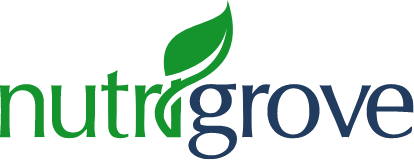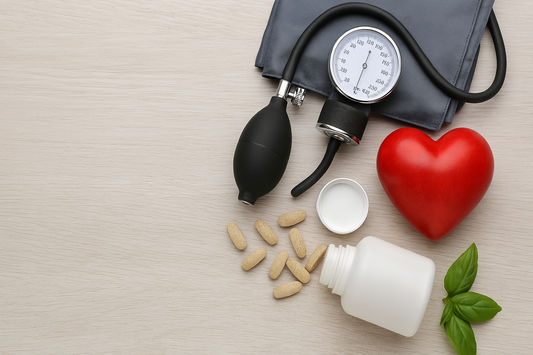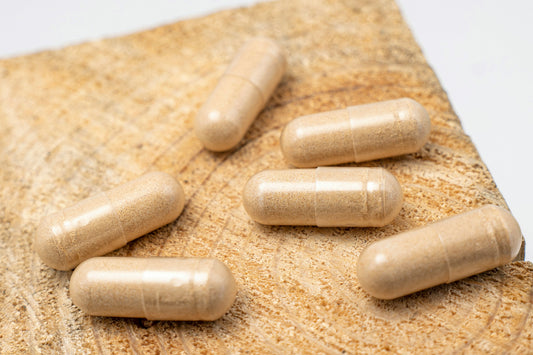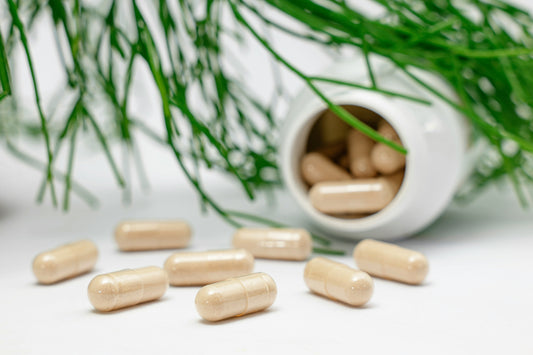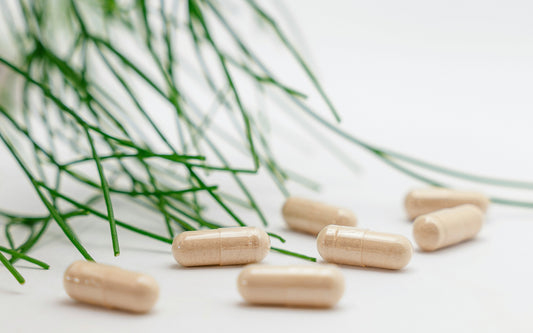Understanding Diet and Hypertension: Key Facts & Tips
When it comes to managing hypertension, making simple changes to your diet can make a big difference. By adopting a high blood pressure diet and practicing healthy eating for hypertension, you can effectively control your blood pressure levels and reduce the need for medication.
One key aspect of managing hypertension through diet is keeping an eye on your salt intake. A high-sodium diet can contribute to increased blood pressure, so it's important to limit your sodium intake to less than 2,500 milligrams per day. This recommendation may be even lower if you have certain conditions like high blood pressure, diabetes, kidney disease, or if you are African American. Using a food diary, reading food labels, and opting for low-sodium options can help you achieve this goal.
Additionally, monitoring portion sizes and being mindful of your calorie intake is crucial. By understanding the foods you consume and their nutritional content, you can gain insights into your eating habits and make informed choices to support your blood pressure control efforts.
Alcohol consumption should also be moderated, as it can raise blood pressure. And including foods that are rich in potassium, magnesium, and fiber, such as fruits, vegetables, nuts, seeds, legumes, lean meats, and poultry, can further help in your quest for blood pressure control.
Key Takeaways
- Reduce sodium intake to less than 2,500 milligrams per day, or even lower depending on your specific health conditions.
- Keep track of your calorie intake and portion sizes to gain insight into your eating habits.
- Moderate alcohol consumption, as it can contribute to high blood pressure.
- Incorporate foods rich in potassium, magnesium, and fiber into your diet to support blood pressure control.
- Use a food diary, read food labels, and choose low-sodium options to limit your salt intake.
The DASH Diet: A Heart-Healthy Approach

The DASH (Dietary Approaches to Stop Hypertension) diet is a well-known and highly recommended eating plan for individuals looking to manage their blood pressure and improve overall health. This heart-healthy diet focuses on consuming a variety of nutrient-rich foods while reducing the intake of salt and sugar.
The key to the DASH diet is emphasizing the consumption of fruits, vegetables, whole grains, fish, poultry, nuts, legumes, and low-fat dairy products. These foods are packed with essential nutrients like potassium, magnesium, calcium, fiber, and protein, which are beneficial for blood pressure control and overall well-being.
By following the DASH diet, individuals are encouraged to limit their intake of desserts, sweetened beverages, red meat, and processed meats. These foods are often high in unhealthy fats and can contribute to elevated blood pressure. Instead, the focus is on creating a balanced eating plan that incorporates the recommended serving sizes for each food group, ensuring a wholesome and heart-healthy approach to nutrition.
Creating a Balanced DASH Diet
- Increase your fruit and vegetable intake: Aim to include a variety of colorful fruits and vegetables in your meals. These provide essential vitamins, minerals, and antioxidants that can help lower blood pressure.
- Eat whole grains: Opt for whole grains like brown rice, quinoa, whole wheat bread, and oats. These are high in fiber and can help regulate blood pressure and improve heart health.
- Choose lean proteins: Include lean sources of protein such as fish, poultry, and legumes in your diet. These are low in saturated fats and can provide important nutrients for blood pressure management.
- Reduce sodium intake: Minimize your consumption of high-sodium foods by choosing low-sodium options and avoiding adding salt at the table. Reading food labels can help you identify hidden sources of sodium in processed foods.
- Limit sugary foods and beverages: Opt for naturally sweetened options like fruits instead of sugary snacks and desserts. Choose water or unsweetened beverages instead of sugary sodas or juices.
- Control portion sizes: Pay attention to portion sizes to ensure you are consuming the right amount of calories and nutrients. This can help with weight management and blood pressure control.
By following the DASH diet and making these heart-healthy food choices, individuals can take proactive steps towards managing their blood pressure and improving their overall health.
Tips for Heart-Healthy Eating

When it comes to maintaining a healthy diet to manage high blood pressure, there are several key tips to keep in mind. By focusing on the right foods and making smart choices, you can support your overall cardiovascular health.
1. Prioritize Nutrient-Rich Foods: Make fruits, vegetables, whole grains, lean proteins, and low-fat dairy products the foundation of your diet. These foods are packed with essential nutrients and low in unhealthy fats, added sugars, and sodium.
2. Read Food Labels: Take the time to carefully read and analyze the nutritional information on food packaging. Look out for levels of saturated and trans fats, sodium, and added sugars. Choose foods that are low in these components to make heart-healthy choices.
3. Prepare Meals at Home: By cooking at home, you have control over the ingredients you use, reducing the intake of unhealthy additives and excessive salt. This also allows for portion control and helps you create balanced meals that support blood pressure management.
Add these foods to your grocery list:
- Fresh fruits and vegetables
- Whole grains like brown rice, whole wheat bread, and oats
- Skinless poultry and lean cuts of meat
- Low-fat dairy products such as yogurt and milk
- Legumes like beans, lentils, and peas
- Nuts and seeds
By following these tips and incorporating heart-healthy foods into your daily diet, you can make great strides in managing your blood pressure and promoting overall well-being.
Mindful Food Choices for Blood Pressure Control
When it comes to effectively controlling blood pressure, making mindful food choices is key. By incorporating certain foods into your diet, you can support blood pressure control and promote overall health. Here are some examples of nutrient-dense foods that can help reduce hypertension:
- Apples
- Apricots
- Bananas
- Beet greens
- Broccoli
- Carrots
- Collards
- Green beans
- Dates
- Grapes
- Green peas
- Kale
- Lima beans
- Mangoes
- Melons
- Oranges
- Peaches
- Pineapples
- Potatoes
- Raisins
- Spinach
- Squash
- Strawberries
- Sweet potatoes
- Tangerines
- Tomatoes
- Tuna
- Yogurt (fat-free)
These foods are rich in nutrients like potassium, calcium, and magnesium, which are known to have a positive impact on blood pressure levels. Additionally, fruits and vegetables are low in sodium and high in fiber, making them excellent choices for those looking to reduce hypertension. When selecting fruits and vegetables, opt for whole ones rather than juices to ensure you're getting the full fiber content.
Incorporating nuts, seeds, legumes, lean meats, and poultry into your meals can also provide valuable sources of magnesium and contribute to blood pressure control. By creating a balanced eating plan that includes these nutrient-dense foods, you can support your overall health while effectively managing hypertension.
Understanding the Importance of Reading Food Labels
When it comes to maintaining a heart-healthy diet, one crucial step is reading food labels. By carefully examining the nutritional information on packaging, you can make informed choices about the foods you consume to support your overall health and manage hypertension.
One key element to look for on food labels is the levels of saturated and trans fats, sodium, and added sugars. It is advisable to choose foods that are low in saturated fat, trans fat, and sodium, while also being mindful of added sugars. Opting for foods that meet specific criteria for these elements, such as those bearing the American Heart Association's Heart-Check mark, can simplify the process of identifying heart-healthy options while grocery shopping.
Additionally, limiting the intake of processed and packaged foods is important for reducing sodium and added sugar consumption. These ingredients are commonly found in such products, so opting for fresh, unprocessed foods and preparing meals at home allows for greater control over ingredients and can help support a low sodium diet and heart-healthy eating plan.
Conclusion
Adopting a healthy eating plan is crucial for effectively managing hypertension and promoting overall well-being. By following a heart-healthy diet, such as the DASH diet, individuals can take control of their blood pressure through the consumption of nutrient-rich foods and the reduction of sodium and added sugars.
Reading food labels and avoiding processed and packaged foods are important steps in making mindful food choices. By focusing on fresh, unprocessed options and cooking meals at home, individuals can significantly reduce their intake of unhealthy additives and better manage their blood pressure.
Remember, it is essential to work with healthcare providers and dietitians to tailor dietary recommendations to your specific needs and preferences. By making sustainable changes to your eating habits, you can support your overall health and well-being while effectively managing hypertension.
FAQ
Can diet help lower blood pressure?
Yes, by making simple changes to your diet, such as reducing salt intake and monitoring portion sizes, you can effectively lower your blood pressure and potentially reduce the need for medication.
How much sodium should I consume per day?
It is advisable to limit sodium intake to less than 2,500 milligrams per day or even lower if you have certain conditions like high blood pressure, diabetes, kidney disease, or if you are African American.
What are some effective strategies to decrease sodium intake?
Using a food diary, avoiding adding salt at the table, reading food labels, and choosing low-sodium options are effective strategies to decrease sodium intake.
What is the DASH diet?
The DASH (Dietary Approaches to Stop Hypertension) diet is a well-known eating plan designed to lower blood pressure and improve overall health. It emphasizes the consumption of fruits, vegetables, whole grains, fish, poultry, nuts, legumes, and low-fat dairy products.
What are some tips for heart-healthy eating?
Focus on consuming foods that are rich in nutrients and low in unhealthy fats, added sugars, and sodium. Prioritize fruits, vegetables, whole grains, lean proteins, and low-fat dairy products. Read food labels to identify and avoid unhealthy ingredients.
How can I make mindful food choices for blood pressure control?
Opt for foods that are rich in nutrients like potassium, calcium, and magnesium. Include fruits, vegetables, nuts, seeds, legumes, lean meats, and poultry in your diet. Avoid processed foods and choose whole foods instead.
Why is reading food labels important?
Reading food labels allows you to make informed choices about the foods you consume. It helps in identifying and avoiding foods that are high in unhealthy fats, sodium, and added sugars.
How can a heart-healthy diet help manage blood pressure?
By following a heart-healthy eating plan, like the DASH diet, individuals can reduce their intake of salt and sugar, known contributors to high blood pressure. It also encourages the consumption of nutrient-rich foods that support blood pressure control.
How can I tailor dietary recommendations to my individual needs?
It is important to work with healthcare providers and dietitians to tailor dietary recommendations to your individual needs and preferences.
Can maintaining a healthy diet reduce the risk of heart disease and stroke?
Yes, maintaining a healthy diet is essential for managing blood pressure and reducing the risk of heart disease, stroke, and other health complications.
Source Links
- https://www.webmd.com/hypertension-high-blood-pressure/high-blood-pressure-diet
- https://www.mayoclinic.org/healthy-lifestyle/nutrition-and-healthy-eating/in-depth/dash-diet/art-20048456
- https://www.heart.org/en/health-topics/high-blood-pressure/changes-you-can-make-to-manage-high-blood-pressure/managing-blood-pressure-with-a-heart-healthy-diet
